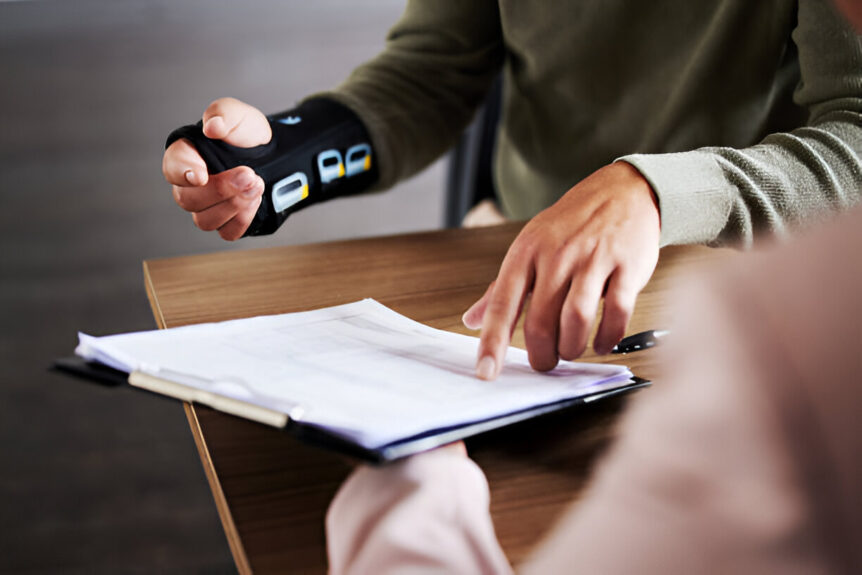“Florida’s auto insurance premiums are among the highest in the country, averaging $2,208 per year.” This eye-popping stat highlights how important it is to understand Florida’s Personal Injury Protection (PIP) laws. These laws are the backbone of the state’s no-fault insurance system, designed to streamline medical payments and reduce litigation. However, navigating the nuances of PIP can be challenging, especially when dealing with claims or denials. Let’s break down what Florida’s PIP insurance laws mean for you, their benefits, recent legislative attempts to change them, and how they impact insurance claims.
What Does No-Fault System Mean?
Florida is one of only two states that require drivers to adhere to a no-fault auto insurance system. The term “no-fault” doesn’t mean no one is responsible for an accident. Instead, it ensures that drivers turn to their insurance policies to cover injuries regardless of who caused the crash. This structure is meant to expedite payments for medical expenses and reduce the need for litigation. Focusing on immediate medical coverage, the no-fault system aims to ensure accident victims get the care they need without lengthy court battles over fault.
What are the Benefits of PIP Law in Florida?
Florida’s PIP law is designed to offer quick access to essential benefits after an accident. These benefits include:
-
- 80% of medical bills: PIP covers most medical costs for injuries sustained in an accident.
- Up to $2,500 for non-emergency treatment: Treatment for non-urgent injuries is capped at this amount.
- Up to $10,000 for emergency medical condition: PIP offers more substantial coverage for severe injuries requiring immediate care.
-
Faster Compensation: One of PIP’s biggest advantages is its speed. Since fault doesn’t need to be determined, drivers can receive compensation much faster than in traditional systems.
-
Incentivized Medical Treatment: Florida’s PIP law encourages accident victims to seek care quickly. Drivers must begin treatment within 14 days of the accident to qualify for PIP benefits. Delays can result in denied claims, leaving injured parties to shoulder the costs.
What are the Recent Attempts to Change the Legislation?
Florida’s PIP law has been the subject of intense debate in recent years. Some lawmakers argue that the system is outdated and costly, while others believe it provides essential protections.
In 2021, the Florida Senate introduced SB 54, which proposed eliminating the mandatory PIP requirement. In its place, the bill sought to require:
- Bodily injury coverage: $25,000 per person and $50,000 for two or more people in an accident.
- Medical payments (MedPay): $5,000 for emergency treatment with no deductible for the insured.
Supporters of the bill argued that PIP’s $10,000 limit was insufficient for modern medical costs. They believed mandatory bodily injury coverage would better protect Floridians.
Despite significant momentum, Governor Ron DeSantis vetoed the bill, citing concerns about increased insurance costs and a potential rise in uninsured drivers. He also feared the changes could lead to increased bad-faith litigation, burdening insurance companies and policyholders.
Attempts to repeal PIP resurfaced in 2022 but failed to gain traction in the House and Senate committees. For now, Florida’s no-fault system remains intact.
Florida’s Laws on Personal Injury Protection (PIP) and Their Impact on Florida PIP Insurance Claims
-
Immediate Medical Coverage
One of the primary benefits of PIP insurance is the immediate medical coverage it provides. After an accident, PIP will pay up to $10,000 of your medical expenses, regardless of fault. However, the 14-day rule is crucial—your benefits may be denied if you don’t seek treatment within this window.
-
Coverage Limitations
While PIP offers valuable coverage, it has notable limits:
- Partial payment for medical bills: PIP only covers 80% of medical costs. The remaining 20% could be significant, especially for major injuries.
- Limited wage reimbursement: PIP compensates 60% of lost wages, which may not fully cover financial losses for those unable to work.
- No pain and suffering damages: PIP benefits do not include emotional distress and other non-economic damages.
-
When Additional Claims are Necessary
Pursuing a personal injury claim against the at-fault driver may be necessary for severe injuries or costs exceeding PIP limits. Florida law allows lawsuits in cases involving:
- Permanent or significant injuries.
- Medical expenses that exceed PIP’s coverage.
How PIP Impacts Insurance Claims
-
Streamlined Claims Process
The no-fault system simplifies claims by allowing policyholders to file directly with their insurer. However, insurance companies scrutinize claims closely, looking for reasons to deny or underpay them.
-
Challenges with Denials
Common reasons for denied PIP claims include:
- Missing the 14-day treatment deadline.
- Disputes over whether injuries qualify as “emergency medical conditions.”
- Allegations of fraud or exaggeration.
Providing thorough documentation, including medical records, accident reports, and any other evidence supporting your claim, is essential to avoid these issues.
Need Help Navigating Florida PIP Insurance Claims? Contact RRBH Law Today
Understanding Florida’s PIP laws is critical, but dealing with insurance claims can still be overwhelming. Insurers often prioritize profits over people, making getting the compensation you deserve difficult.
At RRBH Law, we specialize in helping accident victims navigate Florida’s no-fault insurance system and fight back against denied or underpaid claims. Our team is here to ensure that your rights are protected and that you receive the benefits you’re entitled to under Florida law.
Contact us today at 305-800-4663 to schedule a consultation. Let us help you take the next steps toward recovery and justice.

